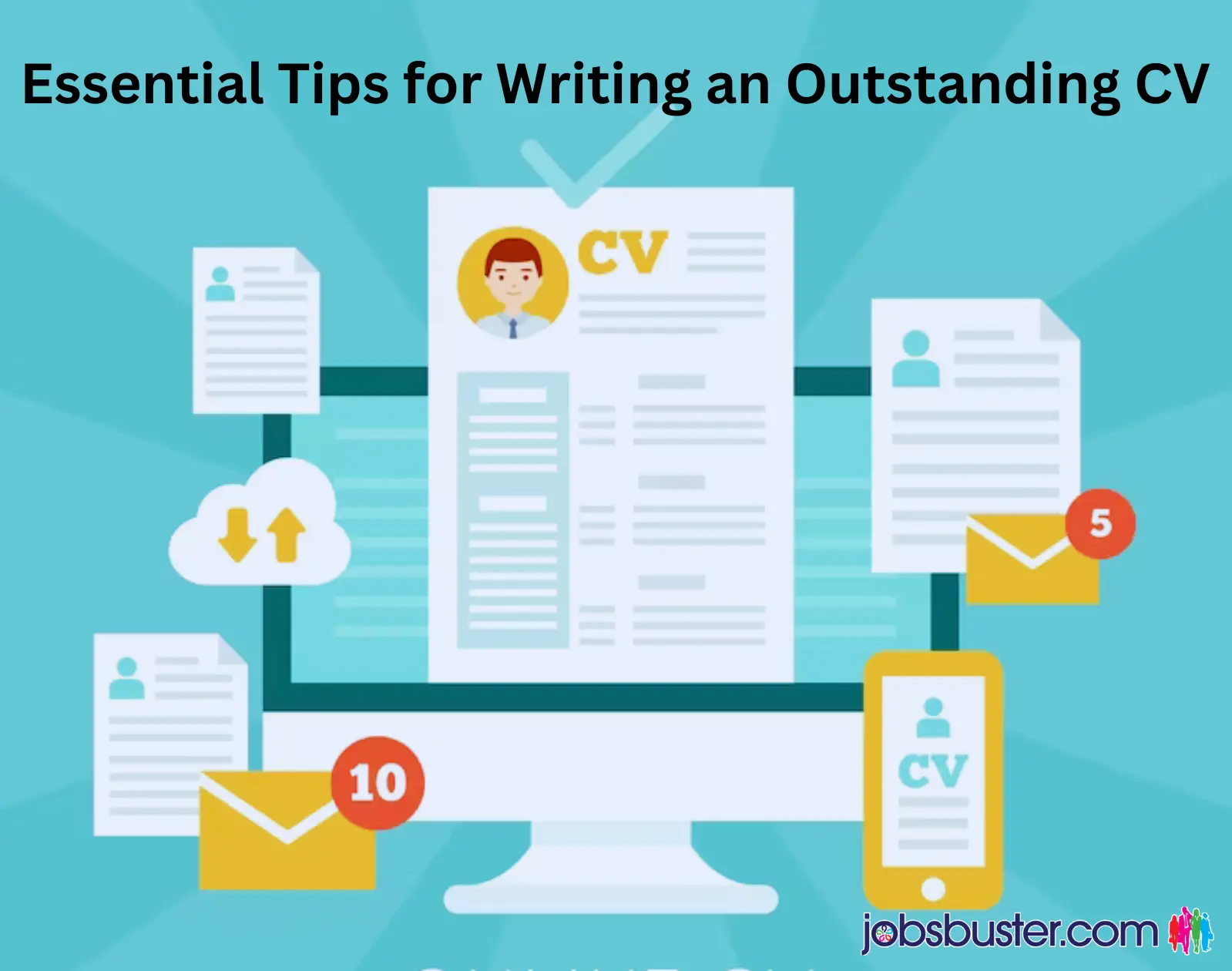
In today’s competitive job market, having an impressive curriculum vitae (CV) is crucial for getting noticed by employers. Your CV is like your professional profile, and it needs to effectively showcase your skills, experiences, and qualifications. To help you create an outstanding CV, we have put together a list of essential tips. By following these guidelines, you can increase your chances of getting an interview and getting closer to your dream job.
Understand the Purpose:
Before you start writing your CV, it’s important to know why you’re doing it. Your CV should show employers why you’re the right person for the job. Tailor your CV to match each job you apply for, focusing on the information that is relevant to that specific position.
Clear and Simple Format:
Make sure your CV looks clean and easy to read. Use clear headings, bullet points, and enough space between sections. Keep your CV concise, ideally within two pages, and only include the most important and relevant details. If your CV looks cluttered or too long, employers might not take the time to read it carefully.
Personal Statement:
Start your CV with a brief personal statement. This paragraph should summarize your professional goals, key skills, and what makes you a valuable candidate. Customize your statement for each job application, highlighting your strengths and how they align with the job and the company.
Highlight Key Skills:
Create a section in your CV where you highlight your most important skills. Be specific and use relevant keywords that match the job description. Include a mix of technical skills, like computer programming, and soft skills, like communication or teamwork. These skills show that you have a variety of abilities that make you a well-rounded candidate.
Work Experience:
List your work experience in reverse order, starting with your most recent job. Include the job title, the company name, the dates you worked there, and a brief description of your responsibilities and achievements. Whenever possible, mention specific accomplishments and quantify them with numbers. This helps employers understand the impact you had in previous roles.
Educational Background:
Provide details about your education, starting with your highest degree or certification. Include the name of the institution, the degree you obtained, the graduation date, and any notable achievements or relevant coursework. If you recently graduated or have limited work experience, highlight your education to show your knowledge and potential.
Customize for the Job:
Tailor your CV to fit each job you apply for. Read the job description carefully and identify the key requirements and skills the employer is looking for. Adjust your CV accordingly, focusing on experiences, skills, and achievements that align with the job description.
Showcase Professional Achievements:
Dedicate a section of your CV to showcase your professional achievements. Include any awards, certifications, publications, or successful projects you have been a part of. These accomplishments demonstrate your dedication, expertise, and the value you can bring to a potential employer.
Attention to Detail:
Pay close attention to grammar, punctuation, and formatting throughout your CV. Even small errors can create a negative impression. Proofread your CV multiple times, or ask someone else to review it for you. You can also use online tools to ensure your CV is error-free and polished.
Regular Updates:
Remember that your CV is not a static document. Update it regularly as you gain new skills, experiences, or qualifications. Review your CV periodically to remove outdated information and ensure it remains relevant and impactful.
Read Also : Highest Paying Job Roles in UK
Writing an impressive CV is a crucial step toward securing your dream job. By following these essential tips, you can create a compelling CV that effectively showcases your qualifications and convinces employers of your suitability for the role. Remember to customize your CV for each application, emphasize relevant skills and experiences, and maintain a professional and error-free presentation. With a well-crafted CV in hand, you’ll increase your chances of standing out and landing that desired job opportunity.